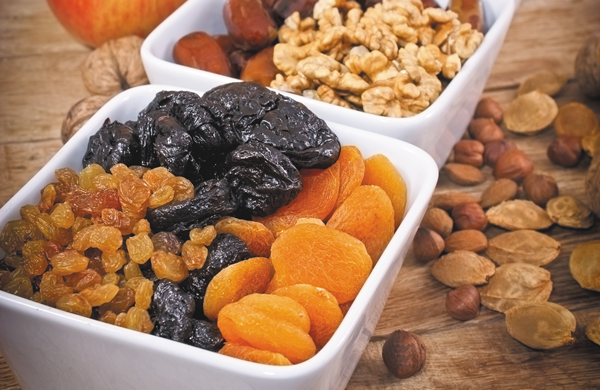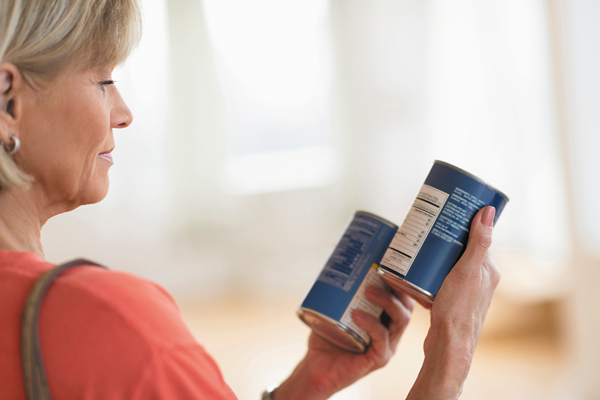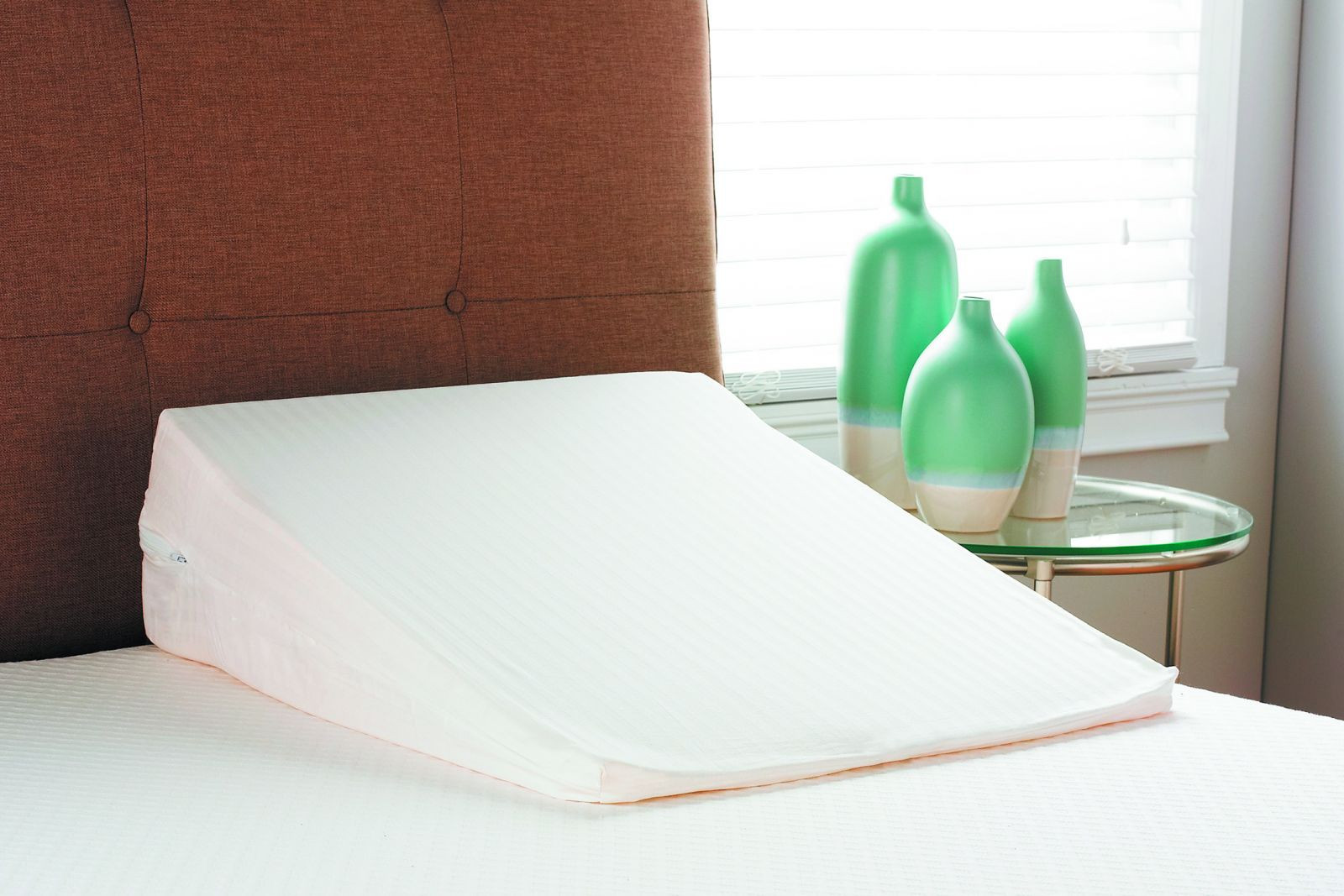
5 timeless habits for better health

What are the symptoms of prostate cancer?

Is your breakfast cereal healthy?

When pain signals an emergency: Symptoms you should never ignore

Does exercise give you energy?

Acupuncture for pain relief: How it works and what to expect

How to avoid jet lag: Tips for staying alert when you travel

Biofeedback therapy: How it works and how it can help relieve pain

Best vitamins and minerals for energy

Should you take probiotics with antibiotics?
Staying Healthy Archive
Articles
Step lively with healthier feet
Keep your feet strong and you'll stay more active.
Image: Gualtiero Boffi/Thinkstock
Socrates may have been the first to equate healthy feet with quality of life when he famously said, "When one's feet hurt, one hurts all over." His observation rings true even millennia later.
"As you age, healthy feet become even more important for staying mobile, active, and safe," says Dr. Kevin Reimer, a podiatrist with Harvard-affiliated Beth Israel Deaconess Medical Center. "When it hurts to walk, you cut back on activities that you enjoy and that keep you healthy."
Need to remember something? Exercise four hours later
In the Journals
Here's a possible strategy to boost memory—exercise four hours after you learn something. In a study published in the July 11, 2016, Current Biology, researchers found that exercise after learning may improve your memory of the new information, but only if done in a specific time window.
Should you take a drug holiday?
A break from a medication is beneficial only in certain cases.
Image: Rallef/ThinkStock
When you think of a holiday, your medicine cabinet probably doesn't come to mind. But for people who take medications long-term, a drug holiday—a break from a medication for days or even years—may be helpful, for some medicines. "For some people, it gives the body a chance to recover the systems that have been suppressed by the drug," says Dr. Michael Craig Miller, assistant professor of psychiatry at Harvard Medical School.
Why take a break?
How to take a break
You must work with your doctor if you'd like to take a drug holiday. He or she will determine if you're a candidate for a break, and consider chronic health conditions you have and other medications you take. "Everybody's experience will be different," says Dr. Miller.
If your doctor says a drug holiday is not appropriate for your medication, but you feel the drug is not working or is causing unwanted side effects, ask about switching to another drug, how to do that safely, and whether a new medication would have potential side effects or long-term risks. Remember, too, that sometimes finding the right medication takes trial and error. Don't give up; stick with it, and stick to the rules for proper use.
Drug holidays: Don't try them on your ownIn general, stopping a medication abruptly can be risky and even life-threatening. For example, if you suddenly quit taking a proton-pump inhibitor, such as lansoprazole (Prevacid) or omeprazole (Prilosec), used to reduce acid reflux and heartburn, you can suffer a rebound effect—a relapse marked by a surge of stomach acid. People with advanced Parkinson's disease who stop taking the often-prescribed drug combination of carbidopa and levodopa (Sinemet) may experience severe rigidity, fever, a change in consciousness, and even death. "In the 1980s, a drug holiday was thought to reduce the side effects of the medication by resetting the brain receptors. But the evidence does not show a difference in long-term improvement. We now know there can be severe complications from abruptly withdrawing. I feel that drug holidays have no role in treating Parkinson's disease," says Dr. Albert Hung, a Parkinson's disease specialist at Harvard-affiliated Massachusetts General Hospital. Other medications you must never stop on your own include those to treat high or low blood pressure, diabetes, high cholesterol, severe pain, anxiety, or insomnia. What if you're experiencing side effects from your medication, or you feel it isn't working? "That's not time for a holiday, but it may be time to switch to another drug. But, with your doctor's advice, be sure to taper one while starting another," says Dr. Michael Craig Miller, assistant professor of psychiatry at Harvard Medical School. |
Is eating dried fruit healthy?
Ask the doctor
Image: lola1960/iStock
Q. I love dried fruit and thought it was healthy. But I hear that you gain a lot of weight eating dried fruit, which is not healthy. What's the truth?
A. The truth is that the actress and comedian Mae West was wrong when she allegedly said "Too much of a good thing ... can be wonderful!" Food contains calories, and eating too many calories-even of healthy foods-leads to weight gain. But there are healthy calories and unhealthy ("empty") calories, and fruit is a healthy source of calories. That's as true of dried fruit as fresh fruit.
Why will the new food labels highlight added sugars?
The new Nutrition Facts labels will list “added sugars” in a serving of food. Until the labels appear, one should look for sugars such as dextrose and sucrose on a label’s list of ingredients.
Easy ways to build better bones
Strength training, weight-bearing exercise, a healthy diet, and medication can help.
Image: Tatomm/iStock
An estimated 10 million people in the United States are coping with the brittle, fragile bones of osteoporosis—a disorder that causes severe bone loss. It's most common in women, and the risk is higher in those who are thin, age 50 or older, or of Caucasian or Asian descent. It also occurs in men, who make up about 20% of osteoporosis cases. The condition puts a person at a high risk for bone fractures, disability, loss of independence, and even death. That's why it's important to make your bones as strong as possible. "There are many ways to build bone mass, and the people who do tell us they feel stronger and more capable on their feet," says Rachel Wilson, a physical therapist at Harvard-affiliated Brigham and Women's Hospital.
There isn't one magic way to build bone mass. It takes a number of the following strategies.
How to avoid the health risks of too much salt
Stick to fresh foods, and fill your salt allotment from healthy sources like whole-grain breads.
Image: Michael Carroll Photography
As we reported in August 2016, the FDA is encouraging the food industry to cut back on added sodium in commercially processed and prepared food. It's a good reminder for all of us that too much salt in the diet is risky for health. How much is too much? "It's controversial, although I don't think anyone is in favor of unlimited salt intake," says Dr. Randall Zusman, a cardiologist with Harvard-affiliated Massachusetts General Hospital.
Salt risks
How much is too much?
So what's the controversy about? It centers on how much salt is safe for consumption, and it's still being debated. The American Heart Association recommends a limit of 1,500 milligrams (mg) per day. The FDA recommends a limit of 2,300 mg of sodium per day. The U.S. Dietary guidelines used to recommend a limit of 1,500 mg per day for a wide swath of people (everyone 51 and older, all African Americans, and anyone with high blood pressure, kidney disease, or diabetes), but this year changed it to 1,500 mg per day only for people with high blood pressure, and 2,300 mg for everyone else.
Common sources of sodium
What you should do
It's best to avoid processed food. Choose fresh, frozen (no sauce or seasoning), or no-salt-added canned vegetables, and opt for fresh poultry, seafood, and lean meat, rather than processed meat and poultry.
Krivitsky recommends limiting sodium to 500 or 600 mg per meal, and making sure it comes from healthy sources, like whole-grain breads and cereals.
How can you find out about sodium content? Start reading Nutrition Facts labels. You really can find low-sodium options. For example, one cup of Post Shredded Wheat has no sodium, and half a cup of Prego No Salt Added pasta sauce has just 40 mg of sodium.
Krivitsky also recommends ditching saltshakers and flavoring food instead with spices, such as cumin, rosemary, basil, ginger, or dill; flavored vinegars; and lime or lemon juice. "Low salt doesn't mean less flavor," points out Krivitsky. "It just means less salt."
How about a salt substitute?When you want to add something salty to food, a salt substitute may do the trick. Substitutes are made from potassium chloride, which is similar to table salt (sodium chloride). Substitutes fall into two categories: low-sodium or "light" salt, which replaces up to half of the sodium chloride with potassium chloride, and no-sodium or "salt-free" salt, which contains only potassium chloride. For some people, potassium chloride can leave a bitter aftertaste. People with certain types of heart or kidney disease, or taking certain potassium-retaining medicines, may be told to avoid potassium-based substitutes. For others, potassium chloride is advisable: it not only helps avoid excess sodium, but also helps lower blood pressure. |
Treatment options for obstructive sleep apnea
A range of choices may help you get a better night's sleep.
Image: Courtsey of Carpenter Co.
When the doctor says you have obstructive sleep apnea (OSA), you'll likely hear about the gold standard in treatment: continuous positive airway pressure (CPAP), which uses forced air, pushed through a tube connected to a face mask, to keep your airway unblocked. Yet many people have trouble adjusting to a bulky CPAP mask. "We often see people who say they tried CPAP and didn't like it, and now it's been years since they've had treatment," says Dr. Stuart Quan, the Gerald E. McGinnis professor of sleep medicine at Harvard Medical School.
You may be able to adjust to CPAP by trying relaxation exercises, practicing wearing the mask during the day, and gradually increasing CPAP pressure. But if it doesn't work out, you do have alternatives.
5 ways to give the gift of health
Look for gadgets or services that get people moving.
Image: DeathToStockPhotos
During the holidays, or at any time of year, a gift that benefits health can have a lasting impact. It may be especially helpful to someone who wouldn't normally purchase such an item or doesn't know about available options. A few guidelines to keep in mind: "The gift should be easy to use. Consider the receiver's interests, and accommodate previous injuries, surgeries, medical conditions, or functional limitations," says Dr. Clare Safran-Norton, a physical therapist at Harvard-affiliated Brigham and Women's Hospital.
1. Services
2. Gadgets
A wearable fitness monitor is helpful to track everything from heart rate to the number of steps walked per day. The majority cost between $50 and $200, and you'll find them at big box stores and sports retailers. An automatic pill dispenser makes sticking to a medication regimen easier for someone who takes several pills daily. The devices are available in drugstores and online. Prices start at about $50.
3. Workout equipment
4. Classes
An exercise class makes a good gift, especially if you offer to come along. "Sometimes people are more inclined to exercise with company. Plus, having someone with you adds an element of safety, and you can share a common goal," says Dr. Safran-Norton. Consider tai chi, ballroom dance, or yoga. Classes are usually sold in packages. You'll find them in exercise studios, hospitals, and community centers. Prices vary.
5. Information
Stay alert! Don’t “drowse” and drive
Driving while very sleepy or drowsy impairs a driver’s reaction time, attention, and judgment.

5 timeless habits for better health

What are the symptoms of prostate cancer?

Is your breakfast cereal healthy?

When pain signals an emergency: Symptoms you should never ignore

Does exercise give you energy?

Acupuncture for pain relief: How it works and what to expect

How to avoid jet lag: Tips for staying alert when you travel

Biofeedback therapy: How it works and how it can help relieve pain

Best vitamins and minerals for energy

Should you take probiotics with antibiotics?
Free Healthbeat Signup
Get the latest in health news delivered to your inbox!
Sign Up











